According to the following tract from Tract Evangelistic Crusade (no longer in business) in Apache Junction, Arizona, it is a sin for women to wear miniskirts, short shorts, or bikinis. Be prepared to read lots of slut-shaming.

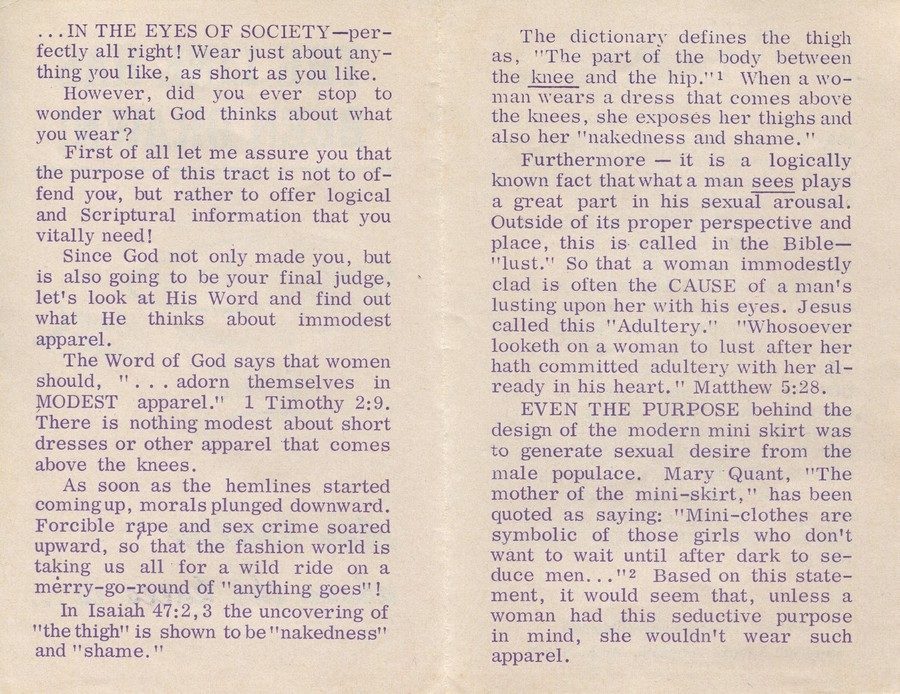

According to the following tract from Tract Evangelistic Crusade (no longer in business) in Apache Junction, Arizona, it is a sin for women to wear miniskirts, short shorts, or bikinis. Be prepared to read lots of slut-shaming.



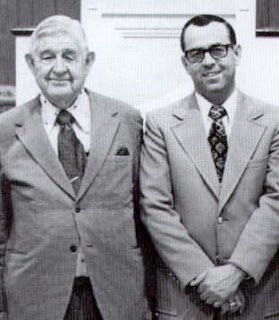
The late John R. Rice, editor of the Independent Fundamentalist Baptist (IFB) newspaper titled The Sword of Lord, is revered as a demigod by IFB preachers and churches. Rice and a cadre of Sword of the Lord affiliated preachers would travel across the country holding pastor’s conferences. These conferences were used to inspire the troops to do big things for God — build big churches, win lots of souls, and collect large amounts of money. In the 1970s and 1980s, many of the largest churches in America were IFB congregations. Rice’s newspaper and publications were widely read by IFB preachers and their congregations. Rice’s Puritanical, Fundamentalist view of the world made a huge impact on several generations of Christians.
Rice died in 1980. Curtis Hutson took over the Rice empire, but never achieved the success of his mentor. Shelton Smith is currently the newapaper’s editor. Today, the Sword of the Lord — much like most IFB churches — is a shell of what it was during its heyday. According to Wikipedia, as of September 2012, the Sword of the Lord newspaper has a biweekly circulation of 100,000. The Sword of the Lord masthead states:
An Independent Christian Publication, Standing for the Verbal Inspiration of the Bible, the Deity of Christ, His Blood Atonement, Salvation by Faith, New Testament Soul Winning and the Premillennial Return of Christ; Opposing Modernism (Liberalism), Worldliness and Formalism.
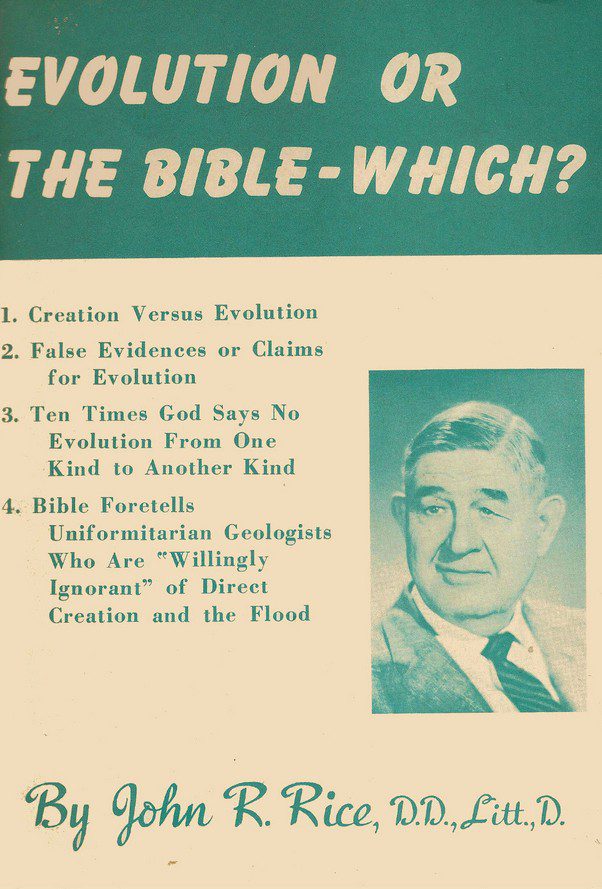



Dear Jesus,
I was five-years-old when I remembered praying to you for the first time. My mother expressed to me the importance of praying every night before I went to bed, and for the next forty-five years, not a day went by that I didn’t bow my head, close my eyes, and utter one or more prayers to you. All told, I prayed tens of thousands of prayers, each uttered with sincerity and faith, believing that you, Jesus, would answer them.
For most of my life I believed, Jesus, that the Bible was your words — the Words of God. I believed you were a kind, loving, compassionate God who had my best interests at heart. When I prayed, I believed that you would answer my petitions according to your will, purpose, and plan for my life. There were times, Jesus, when you answered my prayers right on the spot, and other times when you answered after a short season of trial and testing. But most of the time, my prayers to you went unanswered. I wondered, did I say the wrong words or ask for the wrong things? Why, when it came to big-ticket prayers of life and death proportions, did you never say a word? I prayed and prayed and prayed, and all I got from you was silence.
As I read through the pages of the Bible, I came across promises you made to me and my fellow Christians. If we would have faith the size of a mustard seed — that’s a really small seed, Jesus, just in case you’ve forgotten its size — we could move mountains. You promised that your followers would do greater works than you, yet I never raised the dead, healed the sick, or fed five-thousand people with three Big Macs and a large order of French fries. Every dying person died, despite my prayers. Every sick person either died, stayed the same, or got better. Those who got better had doctors, nurses, and medications to thank, not you, Jesus. Yes, a lot of those sick people did give you credit for their healing, but everyone knew that without modern medicine they would have died. We all kept silent about this, not wanting to ruin your reputation.
I also read where you said that you would be with me through thick and thin; that you would never, ever leave or forsake me. Yet, why were you nowhere to be found during the darkest moments of my life? I wept countless tears, Jesus, calling out to you, begging you to please come to my rescue. I was devoted to you, an on-fire, sold-out preacher of the gospel. I lived and breathed the gospel. I tried my best to live according to what you said in the Bible, even when I found some of your sayings to be perplexing, stupid, or hard. Despite my devotion, you ignored me, choosing instead to help countless Christian grannies find their car keys or hearing aids. What gives, Jesus?
From Genesis 1:1 to Revelation 22:21, I read about a hands-on God who was intimately involved with his creation, including with Bruce Duane Gerencser. I am the only Bruce Duane in the world, so I know you couldn’t have confused me with someone else. Verse after verse — your words, remember? — made promises to me. Surely, God keeps his promises, right? And the biggest promise of all was the one where you promised that when I died I would receive a new/perfect body and spend eternity living in the snazziest city ever built — the New Jerusalem. Granted, no one has ever come back to earth to tell us what lies beyond the grave, but, hey, you are Jesus, the Lord of Lords and King of Kings. Surely, whatever the Bible says is true. You wouldn’t have just been making stuff up, would you?
All told, Jesus, I spent fifty years in the Christian church. Twenty-five of those years were spent gathering up disciples for you. I devoted my life to you, forsaking my family and harming my health. Hundreds and hundreds of people punched their tickets to heaven in the churches I pastored. While my colleagues in the ministry were busy golfing, taking vacations, or banging their secretaries, I was preaching on street corners, planting churches, and doing all I could to win the lost. Even when I decided you were a Calvinist, Jesus, I still did what you commanded me to do: work while it is yet day, for night comes when no man can work. Even though I knew that you had predetermined through some sort of divine lottery who would and wouldn’t go to Heaven when they died, I didn’t know who got the winning tickets, so I treated everyone as a potential golden ticket winner.
For most of my life, I lived in poverty, rarely making enough money to provide for the needs of my family. You told me, Jesus, that I would never have to beg for food, so it was good that Food Stamps didn’t count, right? The Gerencser family never missed a meal, but I do wonder: which of our meals did you provide? I worked and my wages helped buy groceries. For a few years, we received Food Stamps and made ample use of government food stuffs. And on more than a few occasions, kindly church members gave us groceries. It seems, to me anyway, Jesus, that you didn’t have a hand in feeding us. I know that you take credit for the sunshine and rain that causes crops to grow, but everyone now knows, Jesus — thanks to science — that you have nothing to do with where food comes from. Maybe, you should take those verses out of the Bible. Taking credit for something you didn’t do is lying. You don’t want to be a liar, do you?
My wife and I gave thousands and thousands of dollars to you Jesus, just like you commanded us to do. We gave tithes, offerings above the tithe, mission offerings, and revival offerings, along with giving money, cars, clothing, and food to people you told me to help. You never told Polly to do any of this giving, but she trusted that you and I were on good speaking terms. I wonder if I should tell her the truth, Jesus? Should I tell her that all those times I said you were talking to me, leading me, or prompting me, it was really just me doing what I wanted to do; that I wanted to help others, even if it meant hurting my wife and children?
You told me in the Bible, Jesus, that all my giving was being recorded and that every dollar I gave on earth was being stored in Heaven’s First National Bank of New Jerusalem; that someday, once I arrive at my heavenly mansion, I will have vast treasures at my disposal. I wonder, Jesus, would it be possible for me to get a refund? Since you never answered my prayers about my health problems, I have had to deal with chronic pain and illness. Twenty years now, Jesus, with no end in sight. I now know that you are never going to do what you promised you would do. The least you can do, then, is make a wire transfer from my Heavenly account to First Federal Bank of the Midwest, account number 6666666. I have lots of medical bills to pay, and now that my wife is having her own health problems, it would sure be nice if you would refund all the money I’ve deposited in your bank.
Bruce, Bruce, Bruce. Yes, Lord. I can’t give you a refund. Imagine what would happen if Christians everywhere started asking for refunds. Why, there would be a run on the bank and before you knew it, I would be penniless. How will I be able to give all my followers rewards and gift cards on judgment day if I refund everyone’s money? Besides, didn’t you read in the Bible where it says, ALL SALES ARE FINAL? Where does it say that, Jesus? Well, you kind of have to read between the lines. Remember when I was dying on the cross — for YOUR sins, by the way? Remember what I said? It is FINISHED! That’s Greek for ALL SALES ARE FINAL.
Thanks for nothing, Jesus. I hope you won’t mind if I let everyone know that not only are you a liar, but you also are a hoarder; that any monies dropped in church offering plates will disappear into the heavens; that any requests for financial help will be met with silence.
Thanks for nothing, Jesus
About Bruce Gerencser
Bruce Gerencser, 60, lives in rural Northwest Ohio with his wife of 39 years. He and his wife have six grown children and eleven grandchildren. Bruce pastored Evangelical churches for twenty-five years in Ohio, Texas, and Michigan. Bruce left the ministry in 2005, and in 2008 he left Christianity. Bruce is now a humanist and an atheist. For more information about Bruce, please read the About page.
Bruce is a local photography business owner, operating Defiance County Photo out of his home. If you live in Northwest Ohio and would like to hire Bruce, please email him.
Thank you for reading this post. Please share your thoughts in the comment section. If you are a first-time commenter, please read the commenting policy before wowing readers with your words. All first-time comments are moderated. If you would like to contact Bruce directly, please use the contact form to do so.
Donations are always appreciated. Donations on a monthly basis can be made through Patreon. One-time donations can be made through PayPal.
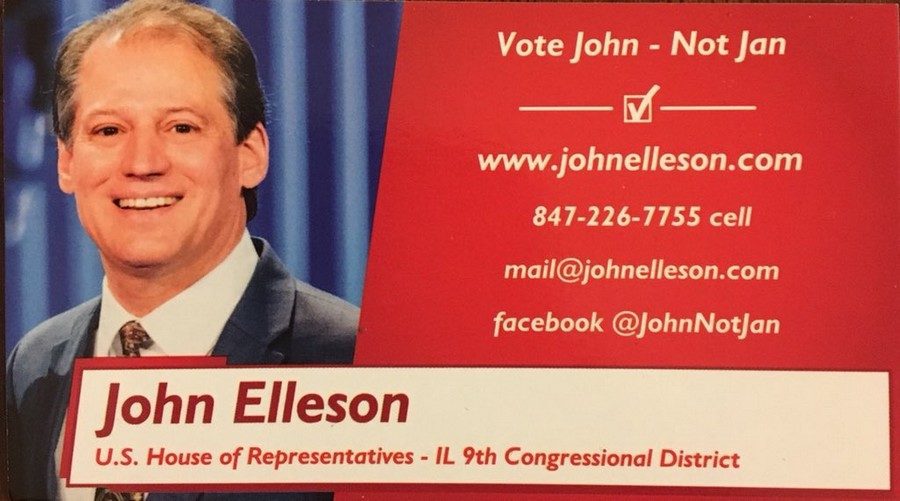
The Black Collar Crime Series relies on public news stories and publicly available information for its content. If any incorrect information is found, please contact Bruce Gerencser. Nothing in this post should be construed as an accusation of guilt. Those accused of crimes are innocent until proven guilty.
John Elleson, an Evangelical pastor, is running in the Illinois Republican primary, hoping to win an opportunity to challenge U.S. Rep. Jan Schakowsky in November’s general election. According to the following Chicago Tribune story, Elleson has a sketchy past.
Kim Janssen, a reporter for the Chicago Tribune, writes:
Arlington Heights pastor John Elleson, who is making a bid for Congress, risked the ire of multimillionaire televangelist Joel Osteen by including Osteen in a recent TV ad without Osteen’s permission.
But Osteen isn’t the only fellow pastor Elleson has upset over the years, court records show.
Elleson — who’s running in the Republican primary to challenge U.S. Rep. Jan Schakowsky in November’s general election — was ordered by a judge to complete 150 hours of community service and to return $49,000 in benefit payments he’d improperly collected after pleading “no contest” to a first degree theft charge in Hawaii in 2003, court records show.
Prosecutors alleged that Elleson and his wife, Suzanne Elleson, who pleaded “no contest” to second-degree theft, had lied about how they were feeding teenagers who attended a religious drug addiction rehabilitation service Elleson ran, so that they could illegally squeeze extra money out of taxpayers.
According to the Honolulu Star-Bulletin, the state probe of Elleson began after a teenage client alleged the Ellesons required him and other clients to apply for benefits, then turn over their benefits cards to Suzanne Elleson or face being kicked out of the program.
That wasn’t the end of Elleson’s problems tied to the rehab program. After the church that had hired him to run the program fired him for his “contentious and noncooperative spirit” and his “assumption of dictatorial authority over an assembly,” Elleson was sued by the church for continuing to use their “Teen Challenge” trademark without permission.
A judge found that Elleson had “willfully engaged in . . . deceptive trade practices,” ordered him to stop and told him to pay the church’s legal costs.
Elleson has fought with a neighboring church in Illinois, too. According to a 2010 lawsuit, Arlington Heights police were, on more than one occasion, called to intervene in a dispute Elleson’s Lakewood Chapel had with the Bethel Pentecostal Church of God.
Elleson sold Bethel half of his church, but after his plan to build a wall dividing the worship area into two was rejected by the village, he “repeatedly interrupted” Sunday services at Bethel by cutting off the electricity to the public address system, removing microphones from the podium during services, and by playing loud music and projection screen TVs during services, according to the lawsuit.
A Cook County jury sided with Bethel, ordering Elleson’s church to pay Bethel $257,600, plus costs.
….
He described “the Hawaii thing” as “an unfortunate time in our lives,” and said he would not have been charged under current law.
“Everybody who knows me, knows I am an open book,” he wrote. “I have nothing to hide. I have shared everything you mentioned, opening with the church I pastor, and anyone who listens to my recorded sermons.”
He added, “In every one of the things you mentioned, there are no rifts with any of the people today. In life you will have conflicts, but we have tried to bring peace to every situation when possible.”
Elleson wrote that he was “not aware of” a 1998 criminal damage conviction he holds in Cook County, according to court records, which indicate he plead guilty to the misdemeanor.
“I have a clean record,” he wrote.
Elleson is the pastor of Lakewood Chapel in Arlington Heights, Illinois.
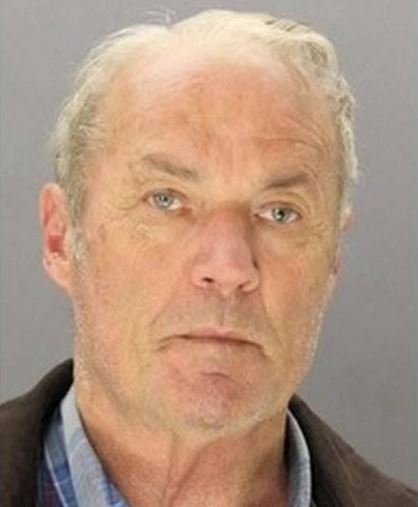
The Black Collar Crime Series relies on public news stories and publicly available information for its content. If any incorrect information is found, please contact Bruce Gerencser. Nothing in this post should be construed as an accusation of guilt. Those accused of crimes are innocent until proven guilty.
Last week, I posted a story about Steven Winn, a youth worker at Open Door Baptist Church in Mesquite, Texas, being arrested and charged with sexually assaulting a church girl. This week, Larry Winn, Steven’s father, has been arrested on sexual assault charges. The elder Winn was the bus director at Open Door, an Independent Fundamentalist Baptist (IFB) congregation.
Domingo Ramirez, Jr, a reporter for the Star-Telegram, writes:
A Mesquite church staff member accused of an inappropriate sexual relationship with an underage congregant may have additional victims, police say.
Larry Winn, 65, of Dallas, who coordinated a bus ministry for members of Open Door Baptist Church who needed a ride to and from worship, is accused of sexually assaulting a teenage girl. He was arrested Thursday.
“Due to Winn’s level of access to children, investigators believe there may be additional victims,” police Lt. Brian Parrish said in a news release.
Days before Larry Winn was arrested, his son Steven Aaron Winn, 33, also a church volunteer, was arrested on a charge of sexually assaulting a different teenage girl at the church.
Larry Winn was arrested Thursday after police received a tip. He was free Tuesday after posting $25,000 bail.
While being interviewed by police, the girl made an outcry of sexual assault that authorities say occurred three years ago when she was 16.
Larry Winn has been on the church staff for several years, police said.
Steven Aaron Winn, of Crandall, worked with church youths, and he became the subject of an investigation Feb. 18, also based on a tip.
….
In 2011, Open Door’s then-pastor Matt Jarrell was arrested and accused of raping a woman near Charleston, W.Va. Jarrell was later found hanging in his jail cell and could not be revived
….
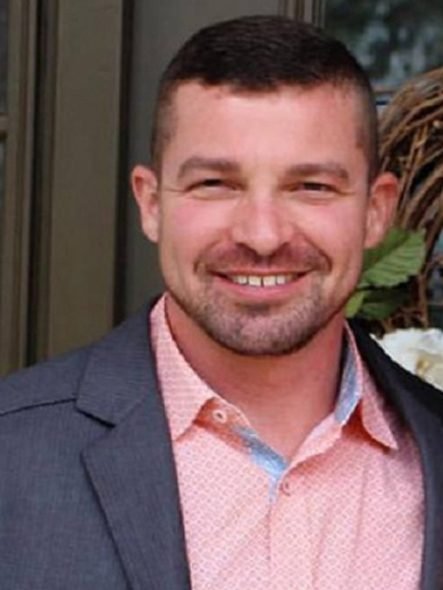
The Black Collar Crime Series relies on public news stories and publicly available information for its content. If any incorrect information is found, please contact Bruce Gerencser. Nothing in this post should be construed as an accusation of guilt. Those accused of crimes are innocent until proven guilty.
Ronnie Gorton, worship leader (some reports say Gorton is the lead pastor) at Awakening Church in Atoka, Tennessee, stands accused of sexually assaulting several teenage boys.
The Covington Leader reports:
On Monday, former Awakening Church worship leader Ronnie Gorton was indicted on 47 counts of sexually assaulting teenagers.
Last month, Gorton, 39, was accused of sexually assaulting at least two minors. He was indicted for incidents involving three, however.
The nearly four dozen charges included five counts of aggravated sexual battery, 17 counts of sexual battery by an authority figure, two counts of continuous sexual abuse of a child (Child Protection Act), 16 counts of statutory rape by an authority figure, two counts of exploitation of a minor by electronic means, two counts of contributing to the delinquency of a minor, two counts of purchasing alcohol for a child and one count of rape.
Tipton County Sheriff’s Office Chief Deputy Billy Daugherty said one of the victim’s ages at the time of the abuse was the aggravating factor in the first set of sexual battery charges.
“The nature of these charges clearly indicate the victims, at some point, were under the age of 13. The age of consent in Tennessee is 18,” he said.
….
In a 2014 interview, Gorton said:
I’d be completely lost without him [Jesus] man. Just knowing some of the things that I have dealt with in my life and some of the struggles I deal with, I can imagine the type of hell that I’d be living in today without Him. So it’s only by His grace by His mercy why I’m here today.
My title, pastor means nothing. I’m human, I’m a man. I struggle like everybody else and there’s no way I could overcome these struggles and be victorious in some of these areas of my life without Him. It’s only by the grace of God that we’re able to have this conversation today.
Local Memphis reports:
A local minister indicted on 47 counts of rape and sex assault with two boys is now out on bond.
Ronnie Gorton’s bond was reduced to $100,000 on Friday.
The senior pastor of the now closed Awakening Church in Munford made bond on Friday and was released Saturday under the condition he wear an ankle monitor.
….

My wife and her mother talk via telephone every Sunday evening around 9:00 PM. One recent topic of discussion was the Winter Olympics. Polly and her Mom both shared what events they liked watching. Polly’s mom, a devout Independent Fundamentalist Baptist (IFB) Christian, shared one observation that left Polly and me laughing when she told me what her mom had said. There sure are a lot of gays in the Olympics now, Mom said, with, I am sure, a shaking of her head a low sounding, umm hmm — the sound she makes when something or someone doesn’t meet her approval.
Polly said nothing. She could have, of course, told her mom that there have always been gay athletes in the Olympics. Gays, gays, gays, everywhere gays, but for most of Mom’s life, they quietly hid in dark closets, so she didn’t see them. Out of sight, out of mind. Now that closet doors have been flung open, Fundamentalists are forced to see and engage people who are considered by them to be abominable reprobates. I have no doubt that Fundamentalists wish that gays would stop flaunting their sexuality — you know like heterosexuals flaunt theirs.
Mom’s youngest brother died of a viral heart disease at age fifty-one. Art was a wonderful man, a pacifist who refused to carry a gun during the Vietnam War. He was a telecommunications operator. Art lived in Michigan, hours away from his Fundamentalist family. When he traveled to Ohio to visit on holidays, he would attend church with the family at the Newark Baptist Temple. I never heard Art talk about God, Jesus, the Bible, or Christianity. He supposedly made a profession of faith as a boy, but I doubt that Art attended church other than when he was visiting his Fundamentalist family. After Art died, it was left to his two preacher’s-wife sisters to settle his estate and take care of his personal property. There were things “found” at his apartment that still can’t be talked about to this day. I’ve thought, over the years, surely everyone knew Art was gay. The first time I met Art was Thanksgiving 1976. I knew immediately that Art was “different” from the rest of us fine upstanding Christians. It’s too bad he died so young. I suspect he would have found today’s societal openness towards gays liberating. I would love to have had an opportunity to talk to him about life as a gay man in a Fundamentalist Baptist family.
I don’t fault my mother-in-law for being homophobic. She was raised in a Fundamentalist Christian home where human sexuality was defined by the Bible. Gay people were disgusting, vile cretins in need of old-fashioned Baptist salvation. Getting saved turned sinners into saints, homosexuals into heterosexuals. This is how I was raised too. From my elementary school years forward, I heard pastors, youth directors, and Sunday school teachers say that God destroyed Sodom and Gomorrah over the sin of ho-mo-sex-u-al-ity (shout the word loudly, enunciating each syllable while pounding on the pulpit). Gay people were viewed as sexual predators. No child was safe when near homosexuals. Church was considered a safe haven because there supposedly weren’t any gays in IFB churches.
I didn’t personally know a gay person until high school. I knew a lot of people who were called queers and faggots, but these slurs were often hurled towards boys who refused to participate in gym or who acted in ways deemed unmanly. They may or may not have been gay. In ninth grade, my gym teacher decided to teach us how to square dance. My pastor got wind of this and made a fuss. Dancing? In school? This resulted in me sitting on the sidelines while everyone else, save two other boys, learned to do-si-do and swing their partner round and round. The other two boys? Yeah….the two “queers” who refused to participate in gym. I was thoroughly embarrassed by having to sit with these boys. (Please read Good Baptist Boys Don’t Dance.)
I am sure my mother-in-law, along with her fellow Christians, is upset and alarmed over how out-in-the-open gay people are these days. Why, there’s even gays kissing on TV! Umm hmm. What Fundamentalists fail to understand is that there have always been gay people. Religious oppression kept them from openly expressing their sexuality. Now, LGBTQ people are out of the closet and openly living their lives as they see fit. Their openness scares the Jesus right out of Fundamentalists. They genuinely believe that homosexuality is a sin above all sins, and that societies which endorse and support such behavior will be judged and destroyed by God. This is why Fundamentalists opposed same-sex marriage and continue to threaten boycotts of companies that support the “gay agenda” or the “gay lifestyle.” The problem now, of course, is that anti-gay Fundamentalists make up a small and shrinking percentage of Americans and tend to live in southern or rural communities. They no longer have the political power necessary to turn back the Sodomite horde. As the United States becomes more inclusive and tolerant, Fundamentalists are forced to admit that Christianity no longer rules the roost; that even some Evangelicals now think it is okay for people to be gay; that come the next Olympics there will be gay athletes. Umm hmm…..
About Bruce Gerencser
Bruce Gerencser, 60, lives in rural Northwest Ohio with his wife of 39 years. He and his wife have six grown children and eleven grandchildren. Bruce pastored Evangelical churches for twenty-five years in Ohio, Texas, and Michigan. Bruce left the ministry in 2005, and in 2008 he left Christianity. Bruce is now a humanist and an atheist. For more information about Bruce, please read the About page.
Bruce is a local photography business owner, operating Defiance County Photo out of his home. If you live in Northwest Ohio and would like to hire Bruce, please email him.
Thank you for reading this post. Please share your thoughts in the comment section. If you are a first-time commenter, please read the commenting policy before wowing readers with your words. All first-time comments are moderated. If you would like to contact Bruce directly, please use the contact form to do so.
Donations are always appreciated. Donations on a monthly basis can be made through Patreon. One-time donations can be made through PayPal.

My last name is GERENCSER. It is of Hungarian origin. It is pronounced Grr-IN-sir, though I have heard pronounced in more wrong ways than I can count. Grinsker, Grinsinger, Garuhenzer, Geringsir, Grensler, Grensker, Grincher, Grinzer, to name a few. And then there’s the various ways people write my last name, similar to the way they think it sounds.
When I have to call a business that will ask for my name, when I’m asked, I immediately say, Gerencser, G-e-r-e-n-c-s-e-r. Rare is the occasion that I don’t have to spell it twice. Recently, I had to spell my name four times before the billing clerk got it. Such times are a real test of my patience.
The misspellings that bother me the most are when someone has the correct spelling of Gerencser and still butchers it. Last week, I attended one of my granddaughter’s spring school programs. The printed program, of course, had her last name misspelled — Gerenscer. Tonight, I attended a theatrical production by one of my granddaughters. I told her father that I was pleased that the arts group had spelled her last name correctly. He laughed and replied, Actually they had it spelled wrong. I pointed it out to them and they corrected it. It was spelled, you guessed it, Gerenscer.This, by far, is the most common misspelling of my name, and Gerencer or Gerenser are also common. The reason for this is that there are no CS words in the English language, so when someone sees the CS in Gerencser they assume it is misspelled.(My editor pointed out there are a few words that end in CS, words such as basics,frolics, and logistics. The real problem is that a “C” followed by an “S” is always hard. Thus “Grinkster.”) One customer service rep asked me after I spelled my name to her, are you sure that’s right? I wanted to reply, are you fucking kidding me? It’s is my last name, I know how to spell it! Instead, I politely said that I had spelled it correctly, and then I gave her an English lesson about why people tend to misspell Gerencser.
My all-time favorite misspeller is my mother-in-law. Polly and I will celebrate forty years of marriage in July, yet my mother-in-law still, more often than not, spells my last name with the C and the S reversed.
Do you have a hard to spell first or last name? Please share your experiences in the comment section.

I grew up in churches that believed Christians were to give their hearts, souls, and minds to God. Followers of Christ were implored to lay their lives on the altar and give everything to Jesus. The hymn I Surrender All aptly illustrated this:
All to Jesus I surrender,
All to Him I freely give;
I will ever love and trust Him,
In His presence daily live.Refrain:
I surrender all,
I surrender all;
All to Thee, my blessed Savior,
I surrender all.All to Jesus I surrender,
Humbly at His feet I bow;
Worldly pleasures all forsaken,
Take me, Jesus, take me now.All to Jesus I surrender,
Make me, Savior, wholly Thine;
Let me feel the Holy Spirit,
Truly know that Thou art mine.All to Jesus I surrender,
Lord, I give myself to Thee;
Fill me with Thy love and power,
Let Thy blessing fall on me.All to Jesus I surrender,
Now I feel the sacred flame;
Oh, the joy of full salvation!
Glory, glory, to His Name!
“I surrender my life to you, Jesus,” I often prayed. “I’ll say what you want to say, do what you want me to do, and go where you want me go.” Jesus commanded his followers to take up their cross and follow him. Those who were unwilling to do so were not his disciples. The book of First John had this to say about what Jesus expected of people who said they were Christians:
And hereby we do know that we know him, if we keep his commandments. He that saith, I know him, and keepeth not his commandments, is a liar, and the truth is not in him. (1 John 2:3,4)
Love not the world, neither the things that are in the world. If any man love the world, the love of the Father is not in him. For all that is in the world, the lust of the flesh, and the lust of the eyes, and the pride of life, is not of the Father, but is of the world. And the world passeth away, and the lust thereof: but he that doeth the will of God abideth for ever. (1 John 2:15-17)
Whosoever abideth in him sinneth not: whosoever sinneth hath not seen him, neither known him. Little children, let no man deceive you: he that doeth righteousness is righteous, even as he is righteous. He that committeth sin is of the devil; for the devil sinneth from the beginning. For this purpose the Son of God was manifested, that he might destroy the works of the devil. Whosoever is born of God doth not commit sin; for his seed remaineth in him: and he cannot sin, because he is born of God. In this the children of God are manifest, and the children of the devil: whosoever doeth not righteousness is not of God, neither he that loveth not his brother. (1 John 3:6-10)
My little children, let us not love in word, neither in tongue; but in deed and in truth. (1 John 3:18)
Beloved, let us love one another: for love is of God; and every one that loveth is born of God, and knoweth God. He that loveth not knoweth not God; for God is love. (1 John 4:7,8)
For whatsoever is born of God overcometh the world: and this is the victory that overcometh the world, even our faith. Who is he that overcometh the world, but he that believeth that Jesus is the Son of God? (1 John 5:4,5)
We know that whosoever is born of God sinneth not; but he that is begotten of God keepeth himself, and that wicked one toucheth him not. (1 John 5:18)
If these verses are taken literally, one thing seems clear: most people who profess to be Christians are what some preachers call “professors and not possessors.” These people have prayed a prayer and embraced cultural Christianity, but they know nothing of True Salvation®. These verses, taken at face value, show that God sets an impossible standard of living.
Evangelical pastors have all sorts of explanations for these verses:

I spent much of my Christian life seeking to love Jesus with all my heart, soul, and mind. I didn’t know, at the time, that there’s no such thing as a heart or a soul, but I took the commands to live this way as saying that I was to give everything to Jesus. I was to die to worldly pleasures and desires. I was to seek first the kingdom of God and His righteousness. My desires, wants, and needs didn’t matter. All to Jesus I surrender, all to Him I freely give, I told myself. My life belonged wholly to God, and he had the right to do whatever he wanted with me. I was, as the Apostle Paul said, God’s slave.
Add to these beliefs my conviction that the Bible is the very words of God and that I had an intimate relationship with God where I talked to him (in prayer) and he talked back to me (through the Holy Spirit), it is not surprising that my life was in a state of constant turmoil. Peace? How could I have peace when there were sins to be confessed and eradicated. Remember, Evangelicals believe that all of us of daily sin in thought, word, and deed. Unlike Catholics who seemly to only sweat the big stuff, Evangelicals believe any thought, word, or behavior that does not conform to teachings of the Bible (and the leadership of the Holy Spirit) is a sin. Jesus, himself, taught this when he said in Matthew 5:28, But I say unto you, That whosoever looketh on a woman to lust after her hath committed adultery with her already in his heart.
Imagine how difficult life was for me when virtually everything I did in life was potentially a sin. Worse yet, I had to judge my motives for doing anything. Giving $50 to a homeless person was considered an act of compassion, but if I gave the money so people would think well of me, I had sinned against God. And then there were sins of commission and omission. Not only could thoughts, words, and deeds be sins, but failing to do something could be a sin too. Murdering someone was certainly was a sin, but so was not trying to stop abortion doctors from murdering zygotes (Greek for babies).
What I have written above about my spiritual quest can be summed up this way: I had a thirst for God. I needed God more than anything. I wanted his presence and power in my life. I read Christian biographies of great men who were devotes seekers God, men such as Hudson Taylor, E.M. Bounds, C.T. Studd, John Wesley, David Brainerd, D.L. Moody, Charles Spurgeon, Adoniram Judson, George Whitfield, George Muller, Nate Saint, and Jim Elliot. These stories stirred a yearning in me that, for many years, could not be quenched.
Of course, living this way is impossible, despite what preachers might tell you. Trust me, there’s not a preacher on earth, dead or living, who met the mark. But Bruce, what about the Christian biographies that suggest otherwise. Like all biographies, Christian ones are an admixture of truth and fiction. Unfortunately, Evangelicals only want to hear stories about winners; stories about people who were victorious; stories about people they could aspire to be. The recent death of Billy Graham has brought out all sorts of fantastical stories about the barely human Graham. Much like the Beatles decades ago, Graham has been made out to be bigger than Jesus. For those of us who don’t buy the Graham myth, we know the rest of the story. All we need to do is look at his two children, Franklin Graham and Anne Graham Lotz. Both of them are hateful, mean-spirited, caustic Fundamentalists. Where did their beliefs come from? The notion that Billy was not a Fundamentalist is laughable.
It took me until I was in my 40s before I realized that striving for holiness and perfection was a fool’s errand; that no matter how much I devoted myself to God and the ministry, my life was never going to measure up. Decades of denying self had destroyed my self-worth. Jesus was preeminent in my life, but Bruce was nowhere to be found (and my wife, Polly, could tell a similar story). I spent a decade trying to be a “normal’ Christian, but I still battled with thoughts about not doing enough for the cause of Christ; not doing enough to win souls; not doing enough to advance God’s kingdom to the ends of the earth. By the time I left the ministry in 2005, a lifetime of thirsting for God had led to dehydration and almost killed me. I have no doubt that my commitment to serving God day and night; to burning the candle at both ends; to working while it is yet day, for night is coming when no man can work, played a part in my declining health. And, at some level, I knew this, but I told myself, it’s better to burn out than rust out.
Come November, it will be ten years since I walked away from Christianity; ten years since Jesus and I divorced; ten years since I realized that the Bible was not what Christians claim it is; ten years since I concluded that the Christian narrative was false. Once the Bible was no longer central in my life, I was forced to build, from the ground up, a new moral and ethical framework. This, of course, required me to abandon or set aside the countless beliefs, commands, and laws that had governed my life for fifty years. Most of all, I had to find the life that had been swallowed up by God, the Bible, and the ministry. Somewhere along the way, Bruce Gerencser died, and I had to find where and start over. I had to answer two crucial questions: who are you and what are you? For a few years, this process was quite painful, and without regular counseling sessions with a secular psychologist, I doubt that I would have been able to undergo it. Not that I have, in any way, arrived. I am still reconnecting with who I really am. I am still learning about my emotions; emotions that I had, at one time, surrendered to Jesus by laying them at the foot of his cross.
Rebooting your life at age fifty isn’t easy, as anyone who has done so will tell you. This is why most people who leave Christianity do so at much younger ages. By the time one reaches one’s fifties, it is hard to abandon a lifetime of beliefs, practices, and experiences. On one hand, I felt, and continue to feel, a great sense of freedom. I am now free from the bondage of religion. Much like the Israelites and their flight from the bondage of Egypt to the Promised Land, my Promised Land journey has been fraught with uncertainty and doubt. I wish I had come to the light decades before, but crying over what might what have been accomplishes nothing. I live in the here and now. My present life is all I have, and once it is gone, that’s it. No heaven, no hell, no afterlife. This is why I encourage people who leave Christianity to focus on the here and now. Evangelicals are fond of saying, only one life, twill soon be past, only what’s done for Christ will last. For the atheist, this little ditty goes this way: only one life, twill soon be past, and once it’s past you’re dead, so you best get to living.
In 2008, I was psychologically dehydrated, near death. It was only when I realized I was doing this to myself that I began to find strength and healing. I remain a work in progress. I will never arrive, but as the old gospel song says, I’ve come too far to turn back now. This blog will remain one man telling his story; a running biography of my former life as a Christian and my present journey as an atheist and a humanist. I have a story to tell, a story of death and resurrection. Thank you for continuing to walk along with me.
 What follows is a letter I wrote several days ago to the athletic director at Miller City High School and the Ohio High School Athletic Association (OHSAA):
What follows is a letter I wrote several days ago to the athletic director at Miller City High School and the Ohio High School Athletic Association (OHSAA):
February 27, 2018
Dear Deb,
Today, I attended the Fairview vs. Spencerville High School Tournament basketball game. I arrived at the venue seventy-five minutes before the doors opened. I asked the parking lot attendant to point me to the handicapped parking spaces nearest the gymnasium. He had me park in the handicapped spots in front of the main entrance. Indeed, this allowed me a short, easy path to my seat.
After the game, attendees were required to exit via the doors opposite of where I entered. When I realized that this path was going to take me away from where I was parked, I asked a man handling crowd control to tell me the best way to get to where I was parked. I told him exactly where I was parked. Instead of allowing me (or anyone else who parked in the front handicapped spaces) short, easy access to my parking space, he told me I had to exit the far side of the building. He then said, and I quote, “it’s not too far away, you can walk it.”
First, how did he know what “not to far away” was for me? There was a reason I parked where I did, and I expected to be able to return to my vehicle via the same path I entered the venue. Second, how did he know I could walk it? Did he have magic powers that enabled him to divine my handicap and physical abilities? Not wanting to press the matter further, I walked the long hallway to the far exit and exited the building. I then had to walk around the building to the front where my car was parked. Needless to say, I was exhausted by the time I reached my vehicle.
I am writing this letter to make you aware of this issue, asking that you please address my concerns with the relevant people. In the future, if people parking in handicapped spaces are expected to exit the far side of the building, then the parking spaces should be on that side. If the parking spaces remain at the front of building, then handicapped attendees parking in them should be able to exit the venue the same way they entered.
Thank you for taking the time to read my letter.
Bruce Gerencser
345 East Main Street
Ney, Ohio 43549
I received a prompt reply from Miller City’s athletic director. She assured me the matter would be looked into and changes made so handicapped people don’t face this or similar problems in the future. I appreciated Deb’s thoughtful reply. As of the writing of this post, I have not heard back from the OHSAA.
I am a professional photographer. During the winter months, I attend local high school basketball games. I take numerous photographs, sharing them with the players and their families on Facebook. On a few occasions, I have even made a few bucks off my work. I thoroughly enjoy watching high school sports (both boys’ and girls’), so attending the games and photographing them provides a brief respite for me as I struggle with chronic pain and disability.
This past season, I attended thirty or so games. It’s tournament time now, so opportunities to see local teams play are becoming fewer and fewer. I have grandchildren in the Tinora and Stryker school districts, and my oldest granddaughter plays for Stryker, so I try to attend as many Tinora and Stryker games as I can. I live in the Fairview school district, so I try to attend their games as well. During the latest holiday season, I donned my red stocking hat as I attended games, leading to countless adults calling me Santa Claus, and more than a few children wondering if I was the “real” Santa. (Seriously, if I was Santa Claus, would I be spending winters in Ohio? Not a chance!) Bit by bit, high school players I have photographed have struck up conversations with me. I have learned much about high schoolers through these conversations. Attending games gives me opportunities to get out of the house, even when I don’t want to. As people with chronic pain and illness will tell you, they have to battle the tendency to want to curl up in a corner and be left alone. In my case, I know it’s good for me to be out and about, even if it causes my pain levels to rise.
In 1997, I was diagnosed with Fibromyalgia. Since then, the list of my afflictions continues to grow. I daily battle unrelenting chronic pain from the top of my head to the bottom of my feet. Over the weekend, I was sitting in my recliner watching TV with lover, friend, and caretaker, AKA Polly. All of a sudden, my left foot felt like it had been repeatedly hit with a hammer. My toe, if you can imagine this, was pulled back to about the ten o’clock position. For thirty or so minutes my foot throbbed with pain. I tried to walk, but I couldn’t. Finally, the pain subsided, the tears dried, and I returned to watching TV. Just another day in the life of a chronic pain sufferer. You never know what you’ll face on any given day.
I also have osteoarthritis in my neck, hands, hips, shoulders, upper back, lower back, knees, and feet. In other words, Uncle Arthur is my constant companion. Throw in high blood pressure, diabetes, incontinence, and bowel problems . . . well, life is grand. It is what it is. I embrace every day as it comes, grateful that I am still among the living.
When I attend public events such as the aforementioned basketball game, I plan my day carefully. I always arrive at least an hour early. This allows me to get parking close to the entrance, and it helps me avoid dealing with rude and inconsiderate people as they push and shove their way towards their seats. Arriving early also allows me to find seating that accommodates my handicap. At basketball games, I prefer to sit on the first row at floor level. I haltingly walk with a cane, so it is best for all involved that I don’t attempt to walk up or down bleachers. I have fallen on more than a few occasions. I suspect if three-hundred-and-fifty-pound Bruce Gerencser landed on someone it would cause serious harm. I do all I can to avoid contact with others.
Seating, of course, is not my only concern. I also have to contend with access to concession stands and bathrooms. I try to go to the concession stand when there are not a lot of people in line. Bathrooms provide a unique and, at times, harrowing experience. Public school bathrooms are supposed to be ADA compliant, but older schools are not required to follow the code. On several occasions I have had to back into stalls, shut the door, and then turn around just be pee. Zeus help me if my bladder is screaming, Gotta go NOW! Accidents happen, and all I can do is hope that no one notices the dark wet stain on my blue jeans. And going #2, as my grandchildren say? I avoid that like the plague. Everything from small stalls, cheap single-ply toilet paper, and my suspenders coming loose, conspire to make taking a dump — another euphemism for defecation which my grandchildren use — a nightmare.
I write all this to give some context as to why someone saying to me, “It’s Not Too Far Away, You Can Walk it” is a big deal. The last thing I need is for someone to dismiss my disability — even if the person does so innocently — because he was in a hurry, or just following the “rules.” I have learned that the only way for disabled people to be heard is for them to shout loudly above the noise of the crowd. In my case, shouting loudly means writing letters, emails, or blog posts. By doing so, I hope that people will be educated about the difficulties the disabled face when attending public events.